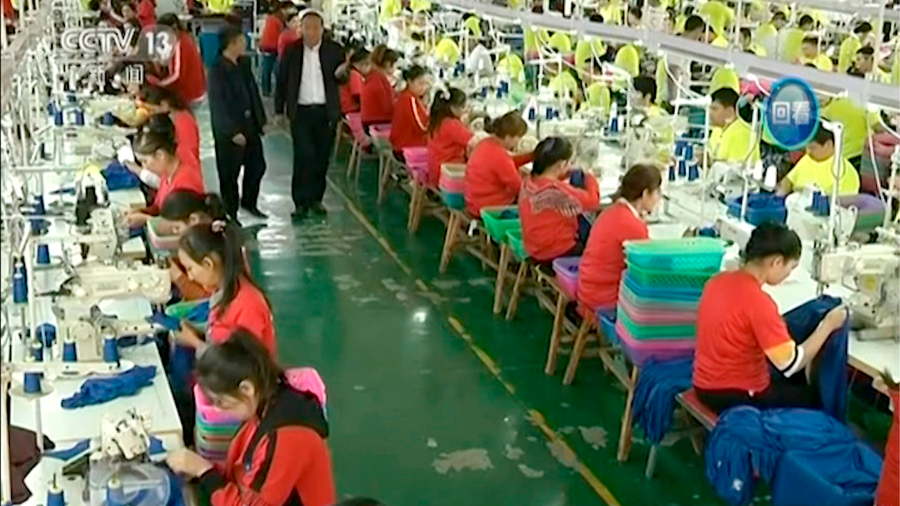Brussels is set to ban products made using forced labour, a move that could further increase strains in its trade relations with China in the light of allegations about forced labour in the province of Xinjiang.
Shoes, clothes and commodities such as timber, fish and cocoa are among the products most likely to be affected, according to those with knowledge of the plans.
The US in June enacted a blanket ban on all imports from China’s Xinjiang province, where there have been allegations of widespread human rights violations — including torture, arbitrary detention and forced labour — against Muslim Uyghur and other minorities.
The EU ban will instead focus on all products made from forced labour — including those made within the bloc — to avoid breaching World Trade Organization rules on non-discrimination.
The Green/European Free Alliance bloc in the European Parliament has backed a US-style ban. Henrike Hahn, a German Green MEP and member of the parliament’s China delegation, said: “We are not like-minded friends of the totalitarian regime in China. We demand a ban on imports of products from Chinese forced labour and on products from Chinese companies in general produced with forced labour.”
The European Commission, the executive body of the EU, is expected to announce its plans this week.
“Forced labour constitutes a serious violation of a person’s human dignity and fundamental human rights,” said a confidential draft paper seen by the Financial Times, adding that it was the EU’s “priority” to eradicate it.
The paper, which does not cite individual countries that could be targeted by the ban, added that the EU did not have time for a “fully fledged” impact assessment because of the urgency of the issue.
The ban, which is likely to become law by next year at the earliest, will apply to products where forced labour has been used at any stage of their production, harvest or extraction and to all products, of any type, including their components, the paper said.
“All economic operators, economic sectors, stages of production or steps of value chains should fall under the scope,” it added.
The EU will use the International Labour Organization’s definition of forced labour. The UN body estimates that 25mn people worldwide suffer forced labour conditions. It is releasing fresh estimates on Monday.
The 27 EU member states will be responsible for detection and enforcement and must respond to complaints by non-government organisations, companies and others. They will have to conduct an investigation and can request co-operation from the country producing the goods.
Officials accept it could be hard to find proof, especially if countries do not co-operate. But if there is a good likelihood of forced labour being used, member states will be able to seize products and ban imports. An official said the EU has lowered “the burden of proof” to help enforce the ban.
According to the paper, enforcement will concentrate on large companies, including manufacturers, producers and suppliers of goods, following concerns that small companies have less leverage to put pressure on suppliers and “fewer resources to conduct in-depth due diligence” on those companies.
Regulators also want to boost co-operation with countries outside the EU to make sure products using forced labour do not end up in the bloc, the draft said.
Earlier this month, the UN High Commissioner for Human Rights said the Chinese government had committed “serious human rights violations” in its treatment of Uyghurs and other Muslim ethnic minorities in Xinjiang.
China has denied it is abusing human rights in Xinjiang, one of the world’s largest producers of cotton and a key supplier of materials for solar panels.


